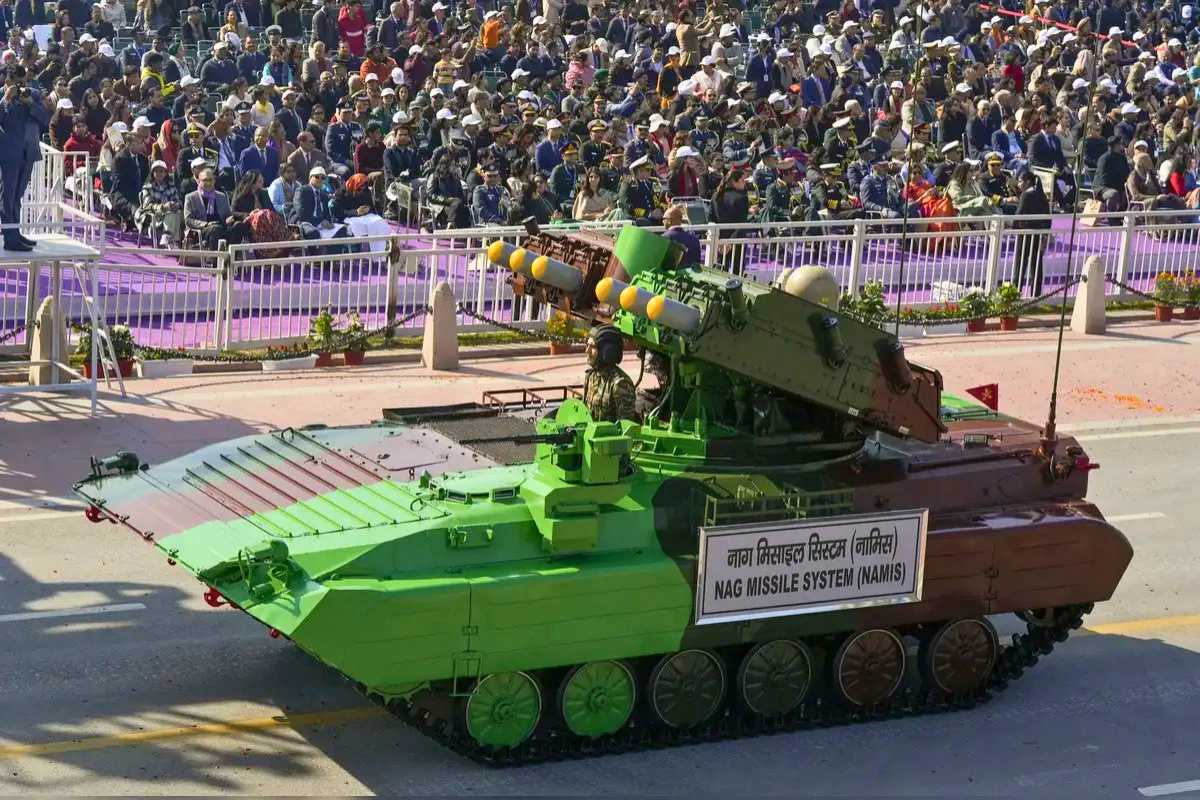New Contracts for NAMIS and Light Vehicles
Recently, the Ministry of Defence of India signed contracts aimed at modernising the country’s defence capabilities. These agreements, valued at approximately ₹2,500 crore, include the procurement of the Nag Missile System (NAMIS) and around 5,000 light vehicles. The contracts were signed under the Buy (Indian-Indigenously Designed, Developed and Manufactured) category, promoting indigenous defence production.
What is Nag Missile System (NAMIS)?
The Nag Missile System is a tracked anti-tank weapon platform. Developed by the Defence Research & Development Organisation (DRDO), the total contract cost for NAMIS is ₹1,801.34 crore. This system enhances the anti-tank capabilities of the Indian Army. It features a fire-and-forget missile technology, which improves lethality and operational effectiveness against enemy armour.
Operational Advantages
NAMIS is designed to transform mechanised operations. Its advanced sighting system allows for greater accuracy and firepower. The system is expected to enhance the Indian Army’s operational readiness across various combat scenarios. This modernisation is crucial for maintaining a strategic advantage over adversaries.
Light Vehicles Specifications
The light vehicles possess enhanced engine power and can carry a payload of up to 800 kg. These vehicles are intended to provide mobility for the Armed Forces in diverse terrains and operational conditions. Their design reflects the latest advancements in military vehicle technology.
Impact on Indigenisation and Employment
Both contracts are a step towards enhancing indigenisation in India’s defence sector. They aim to boost national defence equipment manufacturing capabilities. The projects are expected to generate direct and indirect employment opportunities. By encouraging the MSME sector, these contracts will encourage local component manufacturing.
Aatmanirbhar Bharat Initiative
The procurement aligns with the government’s vision of Aatmanirbhar Bharat (Self-Reliant India). This initiative promotes self-sufficiency in defence production. The contracts signify a commitment to empowering indigenous industries and reducing reliance on foreign imports.
Future Prospects
The successful implementation of these contracts could pave the way for future advancements in India’s defence technology. As the nation invests in its military capabilities, it aims to strengthen its position in regional and global security dynamics. Continued focus on indigenisation will likely enhance the overall efficiency and effectiveness of the Armed Forces.
Month: Current Affairs - March, 2025
Category: Defence Current Affairs








